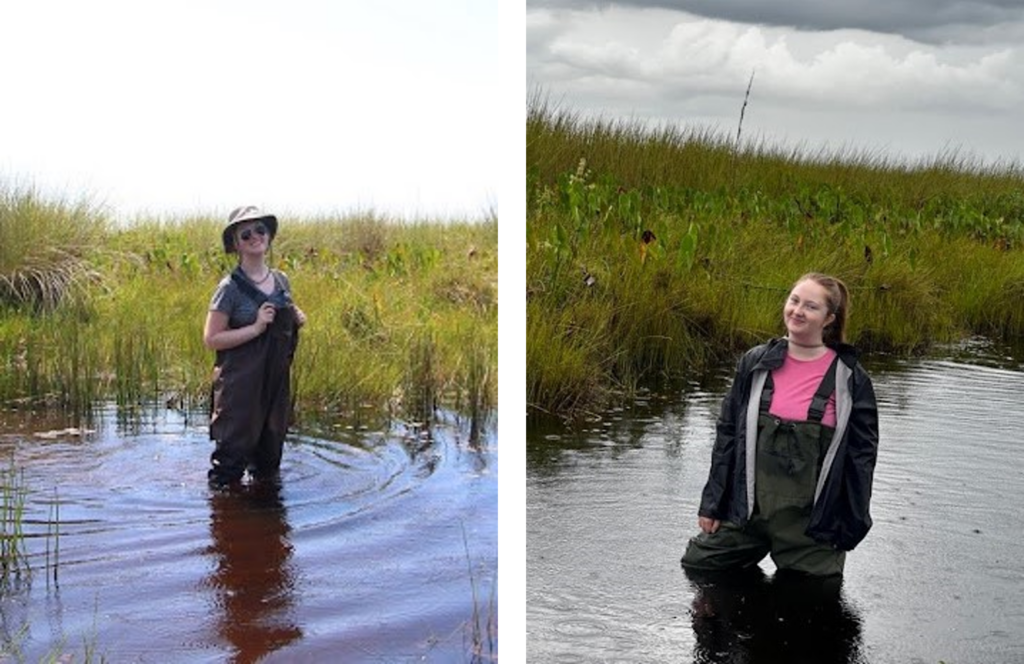By Veronica Groves, a PhD student at McGill University
The last time I was in Uganda, I was an undergraduate student participating in McGill’s Africa Field Study Semester in the winter of 2020. Our term ended abruptly in Tanzania on March 15th, 2020 for obvious reasons (worldwide pandemic). However, when I left Lake Nabugabo, during the Uganda portion of the term, I had a real sense of calm and a feeling that someday I would return. From that point, Lake Nabugabo has always held a special place in my heart as my honours research studied the impacts of fisheries induced change here,on a small cyprinid fish of socio-economic importance. It was my first proper foray into research and catalyzed my scientific and academic career. My study utilized preserved specimens back at McGill, and so visiting the system where my fish were collected and getting to meet the fishers was surreal. I had anticipated feeling melancholic when the Nabugabo portion of the term concluded, but it felt like an ‘until we meet again’ rather than a ‘goodbye’.
Fast-forward 4 years and two degrees later, I am a PhD candidate in biology, back at McGill University under the supervision of Prof. Lauren Chapman. My dissertation explores the impacts of multiple abiotic and biotic stressors on freshwater fishes across two study systems: species at risk in Ontario, Canada, and (drumroll) fishes targeted by an invasive predator in Lake Nabugabo, Uganda!
In April 2024, thanks to support from the QCBS Excellence Award and the McGill Bieler School of Environment Experiential Learning Fund, I had the opportunity to make my grand return to Lake Nabugabo. I spent just over 3 weeks in the field collecting data for my second thesis chapter which included conducting thermal tolerance trials on four different species totaling 150 individuals, running behavioural assays on 450 fishes, and collecting 100 cichlids to transport home to McGill. This work would not have been possible without the assistance of my lab mates Erin Francispillai and Jessica Reemeyer, our local collaborator Dr. Dennis Twinomugisha, and our incredible team of field assistants: Jackson Mutebi, Geoffrey Kiberu and Fred Sseguya.
Returning to such a special place four years and an entire pandemic later provided an enriching opportunity that allowed me to reflect on how far I’ve come and where I want to be headed. As much as some things change, they also stay the same. COVID-19 shifted the entire world, but the globe did keep turning. My world shifted, I grew, changed, tore it all down, rebuilt, and there I was standing in the same place but as a new ‘me’.
The waves eroded the shoreline, but the horizon stayed the same.

About the author: Veronica Groves is a PhD candidate in the Biology Department at McGill University under the supervision of Prof. Lauren Chapman. Having completed a H.BSc. Agri. Envr at McGill University and MSc. at Concordia University, Veronica specializes in the impacts of multiple stressors on freshwater fish behaviour, physiology, and life-history through the lens of conservation.
Twitter @VeronicaGroves7

0 Comments